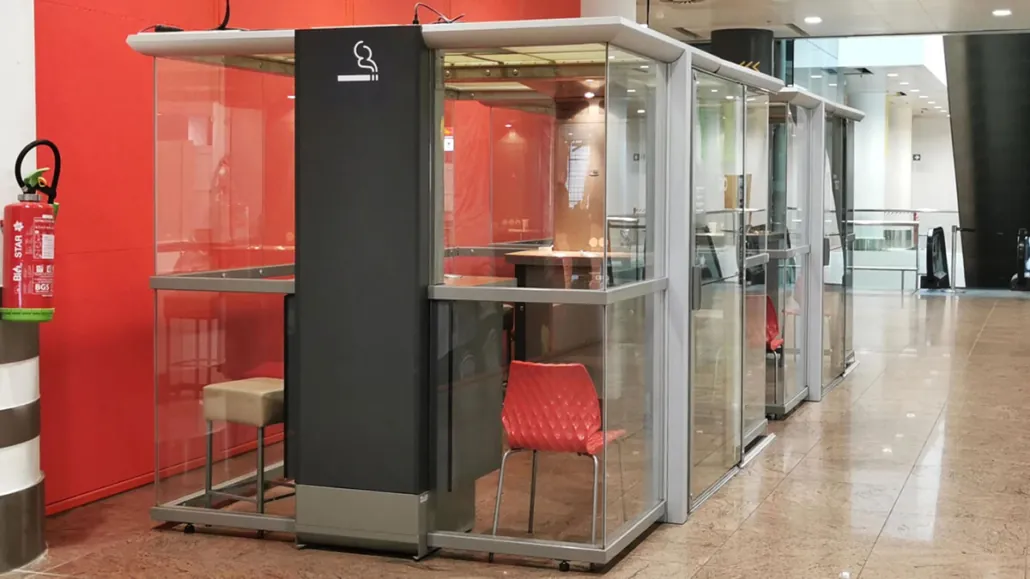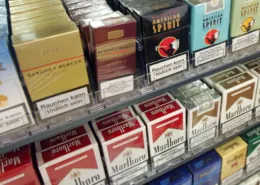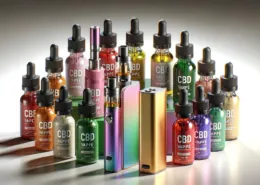Comprehensive Guide for Vaping in Belgium – Laws and Regulations
Belgium, a small yet vibrant country in Western Europe, is renowned for its medieval towns, rich history, and diverse culture. If you are a local vaper or planning a visit to Belgium for leisure or business, it’s essential to understand the local vaping laws and regulations. This guide will help you navigate the vaping landscape in Belgium, ensuring you can use your vape devices legally and responsibly.
The Legality of Vaping in Belgium
Vaping is legal in Belgium, but it is highly regulated to ensure public safety and prevent youth access. You can legally buy, use, and possess e-cigarettes and e-liquids if you are over 18 years old. The sale of vaping products, including devices and e-liquids, is also legal, provided that sellers comply with national and EU regulations.
Importing vaping products for personal use is allowed, but businesses involved in the commercial sale or distribution of e-cigarettes must adhere to specific guidelines and licensing requirements. E-cigarettes containing nicotine are treated similarly to traditional tobacco products, with strict controls on packaging, labeling, and advertising to prevent misleading claims about their safety.
Vaping Regulations in Belgium
Belgium’s vaping laws are primarily governed by the European Union’s Tobacco Products Directive (TPD), which sets out rules for the manufacture, presentation, and sale of e-cigarettes and e-liquids. Key regulations include:
- Nicotine Limits: The maximum nicotine concentration allowed in e-liquids is 20 mg/mL.
- Tank and Cartridge Capacity: Vape devices are limited to a maximum tank size of 2 mL, and e-liquid bottles cannot exceed 10 mL.
- Packaging and Labeling: All vaping products must include clear health warnings similar to those found on tobacco products. The packaging must also provide information on ingredients, nicotine content, and usage instructions.
- Advertising Ban: Advertising and promotion of vaping products are banned across all media platforms, including TV, radio, print, and online. This ban aims to reduce exposure to minors and prevent misleading claims about the health effects of vaping.
- Online Sales: Cross-border sales of vaping products are prohibited, meaning Belgian residents cannot legally purchase vaping products from foreign online retailers. Domestic online sales are permitted, provided the seller complies with Belgian regulations.
These rules are intended to safeguard public health by ensuring that vaping products meet strict quality and safety standards.
Can I Bring Vapes into Belgium?
Yes, you can bring your vape devices and e-liquids into Belgium for personal use. There are no specific laws prohibiting the importation of personal vaping equipment, but it is crucial that your products comply with EU regulations, including the limits on nicotine strength and tank size.
When traveling with vaping products, it is recommended to keep your e-liquids and devices within reasonable quantities, as carrying an excessive amount might lead to questions at customs. Generally, bringing a few bottles of e-liquid (10 mL each) and one or two devices should not pose any issues.
If you are carrying e-liquids containing nicotine, ensure they do not exceed the legal limit of 20 mg/mL. Additionally, keep your vaping equipment in your carry-on luggage to prevent any damage during transit and to comply with airline regulations.

In a landmark move towards achieving a “tobacco-free generation,” Belgium has announced a nationwide ban on the sale of disposable vapes, set to take effect on January 1, 2025. The decision, announced by Public Health Minister Frank Vandenbroucke on Saturday, positions Belgium as the first country in Europe to implement such a ban, with the exception of the United Kingdom, which is no longer part of the European Union.
Can I Vape at Belgian Airports
Vaping at airports in Belgium is restricted to designated smoking areas. As a rule, vaping is treated the same as smoking, so it is not allowed inside airport terminals, lounges, or other indoor public spaces.
For example, Brussels Airport, the country’s main international hub, provides designated smoking areas where vaping is permitted. These areas are typically located beyond security in restricted sections of the airport. It is advisable to use these designated spots to avoid any penalties or conflicts with airport authorities. Smaller airports may have fewer facilities, so always check for signs or ask airport staff about the location of smoking zones.
Brussels Airport has three smoking areas after security screening:
- Topaz Basement: Located on level -1, this smoking room is for staff only and is not accessible to passengers
- Pier A: Located near gates A30 and A/T 65-67
- Pier B: Located near gate B17

Where to Buy Vapes in Belgium
Vaping products are widely available in Belgium and can be purchased from specialized vape shops, tobacconists, and some convenience stores. To buy vaping products, including e-liquids and devices, you must be at least 18 years old. Sellers are required to verify the age of buyers and can face significant fines if found selling to minors.
Products sold in Belgium must comply with the EU’s TPD regulations, which means that consumers can trust that these products meet stringent safety and quality standards. Vape shops often provide a wide range of products, including nicotine-containing and nicotine-free options, as well as various devices suitable for beginners and experienced vapers alike.
Where Can I Vape in Belgium?
Belgium has clear rules about where vaping is allowed, with restrictions mirroring those of traditional smoking. You cannot vape in the following locations:
- Public Indoor Spaces: This includes restaurants, bars, cafes, shops, offices, schools, hospitals, and other indoor public areas.
- Public Transportation: Vaping is not allowed on buses, trains, trams, and other forms of public transit.
- Workplaces: Vaping is generally banned inside workplaces, except in designated smoking areas if provided by the employer.
However, vaping is allowed in most outdoor public spaces, including parks and streets. Some outdoor areas, such as terraces of restaurants or cafes, may also permit vaping, but it’s always best to ask or look for signs indicating the rules.
Upcoming Changes and Regulations
The vaping landscape in Belgium continues to evolve, with the government focusing on tightening regulations to reduce the appeal of these products to young people and non-smokers. One of the most significant changes on the horizon is the ban on disposable e-cigarettes, set to take effect on January 1, 2025. Belgium will become the first EU country to implement such a ban, citing both public health concerns and the environmental impact of single-use vapes as the primary reasons for this decision.
In addition to the disposable e-cigarette ban, several other regulatory changes are being introduced:
- Taxation: As of January 1, 2024, new excise taxes will be imposed on both nicotine-containing and nicotine-free e-liquids at a rate of €0.15 per milliliter. All e-liquids must bear a “tax mark” to indicate that the excise tax has been paid, ensuring proper taxation and compliance for vape products sold in Belgium.
- Product restrictions: Since July 2023, the sale of nicotine pouches and CBD pouches has been prohibited in Belgium. Furthermore, vaping devices are no longer allowed to feature additional functions, such as LED lights, in an effort to reduce their attractiveness to younger users.
- Labeling requirements: As of July 2023, vaping devices must comply with new labeling requirements, which include using a single-word description for flavors and refraining from incorporating added features that may appeal to youth.
These regulatory changes are part of Belgium’s broader anti-tobacco policy, which encompasses stricter rules for disposable e-cigarettes, restrictions on advertising, and the expansion of smoke-free zones in public spaces. The government’s objective is to ensure that alternatives like e-cigarettes are primarily used for smoking cessation rather than becoming an entry point for new users, especially among younger demographics.
Conclusion
Vaping in Belgium is legal but subject to a comprehensive set of regulations designed to protect public health and minimize the potential risks associated with e-cigarette use. As a vaper or a professional in the industry, it is essential to stay informed about the legal framework, upcoming changes, and restrictions on where and how vaping products can be used.
By understanding and adhering to the regulations, vapers can enjoy their e-cigarettes responsibly while contributing to public health goals and minimizing the environmental impact of disposable vapes. Industry professionals, on the other hand, must navigate the evolving landscape by focusing on compliance, innovation, and sustainability to thrive in a market that increasingly prioritizes public health and environmental concerns.
As Belgium continues to shape its vaping policies, it is crucial for both vapers and industry professionals to stay informed about the latest developments and adapt to the changing regulatory environment. By working together and fostering a responsible vaping culture, we can ensure that e-cigarettes remain a viable alternative for adult smokers while minimizing the potential risks to public health and the environment.
- North Carolina’s Vape Product Ban Takes Effect on July 1st - July 3, 2025
- Nepal Court Lifts E-Cigarette Import & Sales Ban - July 3, 2025
- The Data That Proves the Australian Vape Ban is A Failure - July 3, 2025








